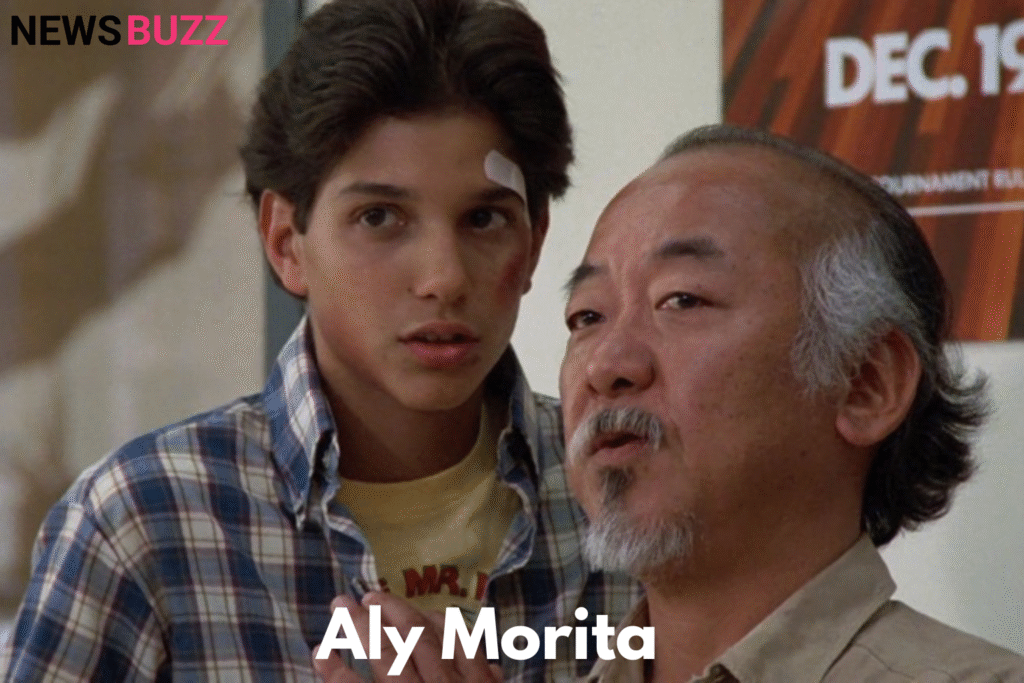Introduction
The name Aly Morita carries both cultural and personal significance. Known as the daughter of the late actor Pat Morita, who famously portrayed Mr. Miyagi in The Karate Kid, Aly has created her own identity as a writer, essayist, and storyteller. Her work delves into themes of heritage, memory, and the complex intersection between personal history and broader cultural narratives.
While her father’s fame introduced her to the spotlight, Aly Morita has chosen to honor his legacy through her own voice. Her essays and creative projects provide not just a tribute to Pat Morita, but also a window into the Japanese American experience, Hollywood representation, and the intimate challenges of family life.
Early Life and Influences
Growing up as the daughter of a globally recognized actor, Aly Morita’s childhood was shaped by the unique blend of Hollywood glamour and personal struggle. Pat Morita’s career, though iconic, was not without challenges. He often faced typecasting, a reality that deeply influenced Aly’s understanding of identity, stereotyping, and cultural representation.
For Aly, these early experiences served as a foundation for her writing. By witnessing firsthand the complexities of fame and cultural identity, she developed the ability to explore nuanced issues in her personal essays and literary work.
Also Read: Edward Abel Smith: A Comprehensive Look at His Life and Legacy
Writing and Creative Contributions
Aly Morita is first and foremost a writer. She has authored deeply personal essays that capture the duality of being both the child of a celebrity and an individual striving to establish her own creative voice.
One of her most recognized essays, Papa-San: Pat Morita’s Daughter Remembers, offers an intimate look at her father’s life and legacy. In this piece, Aly examines not only her family’s story but also the broader themes of Asian American identity, cultural stereotypes in Hollywood, and the lasting effects of historical injustices such as Japanese American internment during World War II.
She has also worked on longer projects, including a novel and a collection of short stories, showcasing her versatility and commitment to storytelling. Whether in essays or fiction, her work resonates with authenticity and cultural depth.
Cultural Impact and Representation
Through her writing, Aly Morita sheds light on critical cultural issues. Her reflections highlight the struggles of Asian American actors in Hollywood, particularly during her father’s career when opportunities were limited and often stereotypical.
She also engages with the Japanese American experience, weaving personal memory with historical context. Her essays demonstrate how the past—internment camps, generational trauma, and cultural resilience—continues to shape the present. In doing so, Aly not only preserves her father’s legacy but also contributes to the larger conversation about diversity and representation in the arts.
Step-by-Step Guide: Lessons from Aly Morita’s Journey as a Writer
For aspiring writers who wish to follow a path similar to Aly Morita’s, her journey provides valuable guidance:
Step 1: Draw from Personal History
Use your own experiences as inspiration. Aly’s essays often begin with family memories that lead to broader reflections on identity and culture.
Step 2: Connect the Personal to the Universal
Transform private stories into narratives that resonate with wider audiences. By tying her father’s life to issues of typecasting and representation, Aly creates work that speaks beyond her own family.
Step 3: Explore Multiple Forms of Writing
Experiment with different genres—memoir, essays, fiction, or criticism. This approach allows for growth and flexibility in developing a distinct voice.
Step 4: Embrace Cultural Honesty
Write authentically about cultural identity, even when it is challenging. Aly’s willingness to tackle stereotypes and difficult truths makes her writing powerful.
Step 5: Preserve Legacy Through Storytelling
Consider how writing can keep memories alive. Aly ensures her father’s story continues to inspire by sharing it in ways that honor both his achievements and struggles.
Legacy and Continuing Influence
Although Aly Morita is not as publicly visible as her father, her contributions are deeply meaningful. She represents a new generation of voices who merge personal narrative with cultural commentary, ensuring that important stories are neither forgotten nor misrepresented.
Her work offers inspiration to those exploring themes of identity, family legacy, and cultural belonging. For readers and writers alike, Aly Morita’s journey illustrates how storytelling can become a tool for healing, understanding, and change.
Also Read: Anya Reeve: A Rising Voice in Contemporary Writing and Publishing
Conclusion
Aly Morita stands as a testament to the power of storytelling. While her father, Pat Morita, left an indelible mark on popular culture through film, Aly continues that legacy through the written word. Her essays and creative projects illuminate the intersections of personal memory, cultural identity, and historical awareness.
By honoring her father while carving her own path, Aly Morita has become not just a daughter of an icon, but a writer with her own voice and vision. Her story reminds us of the importance of preserving history, addressing stereotypes, and embracing authenticity in art.
FAQs
1. Who is Aly Morita?
Aly Morita is a writer and the daughter of actor Pat Morita, best known for his role as Mr. Miyagi in The Karate Kid.
2. What kind of work has Aly Morita written?
She has authored personal essays, including “Papa-San: Pat Morita’s Daughter Remembers,” and has worked on projects like a novel and short story collection.
3. What themes does she explore in her writing?
Her writing often addresses cultural identity, Asian American representation, family legacy, and the challenges of Hollywood stereotypes.
4. How does Aly Morita preserve her father’s legacy?
Through essays and reflections, she highlights both the triumphs and struggles of Pat Morita’s career, while connecting his story to broader cultural conversations.
5. Why is Aly Morita’s work important?
Her contributions amplify discussions about representation, identity, and heritage, offering a personal yet universal perspective on these vital issues.



